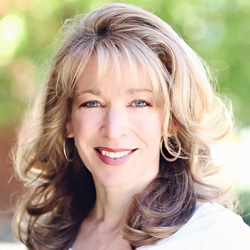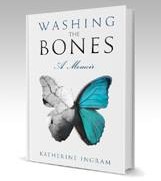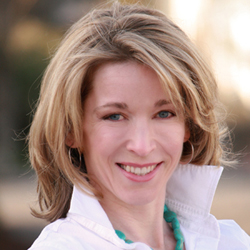Catching-up with Kate…Soul Matters Columnist Publishes First Book
In October, Jacksonville Review contributor and author Kate Ingram’s book, Washing the Bones: A Memoir of Love, Loss and Transformation will hit the bookstores.. I sat down with Kate for a one-on-one talk about her decades-long journey of loss, grief, and perseverance.
JR: Tell us about the storyline of your book…a memoir.
KI: Washing the Bones revolves around the loss of my father when I was 8, and my husband when I was 32. On one level, it’s a story about surviving loss from the perspectives of a little girl and a young widow. On another level, it’s about the importance of embracing grief and allowing our suffering to become a catalyst for a powerful, transformational experience.
JR: The title is unusual…where did it come from and what does it mean?
Washing the Bones was not the original title; I wanted something more beautiful! But a central image in the book concerns an ancient Greek tradition in which human bones are disinterred and ritually washed and grieved over a year after the death, before they are laid to a final rest. The metaphor was so apt and powerful, and the imagery so evocative, I had to use it.
The butterfly is an ancient, universal symbol of transformation, and the symbol of psyche, or soul. It’s the quintessential image of what this book is about: a painful and unimaginable transformation from one sort of creature to another. The process that the caterpillar goes through to become a butterfly is incredible. I am caught by the idea that this transformation happens through a painful dissolution and death. This transformational experience is the gift in grief. We don’t just return to our former lives; everything changes. We are different, and we can be so much more.
JR: You were widowed at a very young age. Was this your inspiration?
It wasn’t so much being widowed young that inspired the book as it was making meaning of my losses. I read a number of books after my husband was killed, but the one that really spoke to me—to the depth of my suffering and the need to grapple with it in a meaningful way—was C.S. Lewis’s A Grief Observed. Lewis struggled with the deep torment of being broken open and having his soul and his beliefs tested to the limit. His writing—which was originally journal entries, as was mine—was fiercely honest and raw. I found myself saying, “Yes!” as I was reading it. It supported and inspired me. I wanted to do for others what Lewis’s book did for me.
JR: You were widowed in 1996. Why did it take so long to write the story?
I had to get a certain distance from all the events before I could see things with greater depth and breadth. That’s the poetic answer. The truth is also that I was really tired of all the death and the grief and depression in my life. I lost two fathers, an uncle, grandparents, aunt, husband, two stepbrothers and a number of friends by the time I was 32. When I remarried in 2001, I just wanted to enjoy my happiness. I needed to have my children and to steep myself in love. And I did many, many years of deep, psychological work. After my daughter was born I began to have stirrings; something wanted to happen, and it took me a long time to connect the dots and to recognize that a book wanted to be written. The actual writing took four years because I was trying to write with two preschool children at home in my mid-forties. I was crazy tired and busy, and the writing happened in the margins of my days. I like to say it gestated thirteen years and I labored four more!
JR: Your genre choice is “memoir.” Did you consider writing Washing the Bones as a “novel?”
A lot of people have suggested that I make this a novel, because it reads like one; the story is captivating and very cinematic. There are sub-plots and flashbacks and all sorts of unusual twists to the tale. I could have hidden behind it and made it a work of fiction, but that would have diluted its power and potential. I realize it’s a risk to expose myself so fully, and that some people may not like what I say or how I describe my experience of them; that’s the risk in writing memoir. But the reality is that my life’s work revolves around being real and vulnerable and honest and open. It’s important to “come out,” as it were, because that frees others to do the same. A novel would not have that same effect.
Washing the Bones will be available in mid-October at www.katherineingram.com, Amazon.com in both paperback and Kindle versions, Barnes and Nobel in Medford, and Terra Firma in Jacksonville.
Posted October 3, 2013



 KATE INGRAM, M.A., is a counselor, soul coach and author. Her first book, Washing the Bones: A Memoir of Love, Loss, and Transformation about her journey through grief and depression to spiritual awakening, was awarded a 2014 Nautilus Silver Medal and a 2014 Indie Book Award. To receive free monthly inspiration or to find out more about her work, please visit
KATE INGRAM, M.A., is a counselor, soul coach and author. Her first book, Washing the Bones: A Memoir of Love, Loss, and Transformation about her journey through grief and depression to spiritual awakening, was awarded a 2014 Nautilus Silver Medal and a 2014 Indie Book Award. To receive free monthly inspiration or to find out more about her work, please visit
Looking forward to reading Kate’s new book!